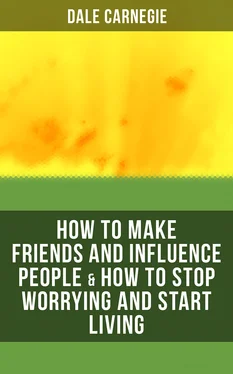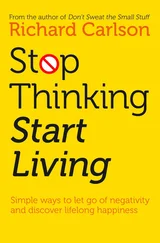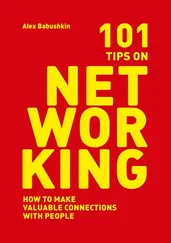Doubtless Mr. ----- had considered himself a holy crusader, defending the public rights against callous exploitation. But in reality, what he had really wanted was a feeling of importance. He got this feeling of importance at first by kicking and complaining. But as soon as he got his feeling of importance from a representative of the company, his imagined grievances vanished into thin air.
One morning years ago, an angry customer stormed into the office of Julian F. Detmer, founder of the Detmer Woolen Company, which later became the world's largest distributor of woolens to the tailoring trade.
"This man owed us a small sum of money," Mr. Detmer explained to me. "The customer denied it, but we knew he was wrong. So our credit department had insisted that he pay. After getting a number of letters from our credit department, he packed his grip, made a trip to Chicago, and hurried into my office to inform me not only that he was not going to pay that bill, but that he was never going to buy another dollar's worth of goods from the Detmer Woolen Company.
"I listened patiently to all he had to say. I was tempted to interrupt, but I realized that would be bad policy, So I let him talk himself out. When he finally simmered down and got in a receptive mood, I said quietly: 'I want to thank you for coming to Chicago to tell me about this. You have done me a great favor, for if our credit department has annoyed you, it may annoy other good customers, and that would be just too bad. Believe me, I am far more eager to hear this than you are to tell it.'
"That was the last thing in the world he expected me to say. I think he was a trifle disappointed, because he had come to Chicago to tell me a thing or two, but here I was thanking him instead of scrapping with him. I assured him we would wipe the charge off the books and forget it, because he was a very careful man with only one account to look after, while our clerks had to look after thousands. Therefore, he was less likely to be wrong than we were.
"I told him that I understood exactly how he felt and that, if I were in his shoes, I should undoubtedly feel precisely as he did. Since he wasn't going to buy from us anymore, I recommended some other woolen houses.
"In the past, we had usually lunched together when he came to Chicago, so I invited him to have lunch with me this day. He accepted reluctantly, but when we came back to the office he placed a larger order than ever before. He returned home in a softened mood and, wanting to be just as fair with us as we had been with him, looked over his bills, found one that had been mislaid, and sent us a check with his apologies.
"Later, when his wife presented him with a baby boy, he gave his son the middle name of Detmer, and he remained a friend and customer of the house until his death twenty-two years afterwards."
Years ago, a poor Dutch immigrant boy washed the windows of a bakery shop after school to help support his family. His people were so poor that in addition he used to go out in the street with a basket every day and collect stray bits of coal that had fallen in the gutter where the coal wagons had delivered fuel. That boy, Edward Bok, never got more than six years of schooling in his life; yet eventually he made himself one of the most successful magazine editors in the history of American journalism. How did he do it? That is a long story, but how he got his start can be told briefly. He got his start by using the principles advocated in this chapter.
He left school when he was thirteen and became an office boy for Western Union, but he didn't for one moment give up the idea of an education. Instead, he started to educate himself, He saved his carfares and went without lunch until he had enough money to buy an encyclopedia of American biography - and then he did an unheard-of thing. He read the lives of famous people and wrote them asking for additional information about their childhoods. He was a good listener. He asked famous people to tell him more about themselves. He wrote General James A. Garfield, who was then running for President, and asked if it was true that he was once a tow boy on a canal; and Garfield replied. He wrote General Grant asking about a certain battle, and Grant drew a map for him and invited this fourteen-year old boy to dinner and spent the evening talking to him.
Soon our Western Union messenger boy was corresponding with many of the most famous people in the nation: Ralph Waldo Emerson, Oliver Wendell Holmes, Longfellow, Mrs. Abraham Lincoln, Louisa May Alcott, General Sherman and Jefferson Davis. Not only did he correspond with these distinguished people, but as soon as he got a vacation, he visited many of them as a welcome guest in their homes. This experience imbued him with a confidence that was invaluable. These men and women fired him with a vision and ambition that shaped his life. And all this, let me repeat, was made possible solely by the application of the principles we are discussing here.
Isaac F. Marcosson, a journalist who interviewed hundreds of celebrities, declared that many people fail to make a favorable impression because they don't listen attentively. "They have been so much concerned with what they are going to say next that they do not keep their ears open. ... Very important people have told me that they prefer good listeners to good talkers, but the ability to listen seems rarer than almost any other good trait."
And not only important personages crave a good listener, but ordinary folk do too. As the Reader's Digest once said: "Many persons call a doctor when all they want is an audience,"
During the darkest hours of the Civil War, Lincoln wrote to an old friend in Springfield, Illinois, asking him to come to Washington. Lincoln said he had some problems he wanted to discuss with him.
The old neighbor called at the White House, and Lincoln talked to him for hours about the advisability of issuing a proclamation freeing the slaves. Lincoln went over all the arguments for and against such a move, and then read letters and newspaper articles, some denouncing him for not freeing the slaves and others denouncing him for fear he was going to free them. After talking for hours, Lincoln shook hands with his old neighbor, said good night, and sent him back to Illinois without even asking for his opinion. Lincoln had done all the talking himself. That seemed to clarify his mind. "He seemed to feel easier after that talk," the old friend said. Lincoln hadn't wanted advice, He had wanted merely a friendly, sympathetic listener to whom he could unburden himself. That's what we all want when we are in trouble. That is frequently all the irritated customer wants, and the dissatisfied employee or the hurt friend.
One of the great listeners of modern times was Sigmund Freud. A man who met Freud described his manner of listening: "It struck me so forcibly that I shall never forget him. He had qualities which I had never seen in any other man. Never had I seen such concentrated attention. There was none of that piercing 'soul penetrating gaze' business. His eyes were mild and genial. His voice was low and kind. His gestures were few. But the attention he gave me, his appreciation of what I said, even when I said it badly, was extraordinary, You've no idea what it meant to be listened to like that."
If you want to know how to make people shun you and laugh at you behind your back and even despise you, here is the recipe: Never listen to anyone for long. Talk incessantly about yourself. If you have an idea while the other person is talking, don't wait for him or her to finish: bust right in and interrupt in the middle of a sentence.
Do you know people like that? I do, unfortunately; and the astonishing part of it is that some of them are prominent.
Bores, that is all they are - bores intoxicated with their own egos, drunk with a sense of their own importance.
Читать дальше












